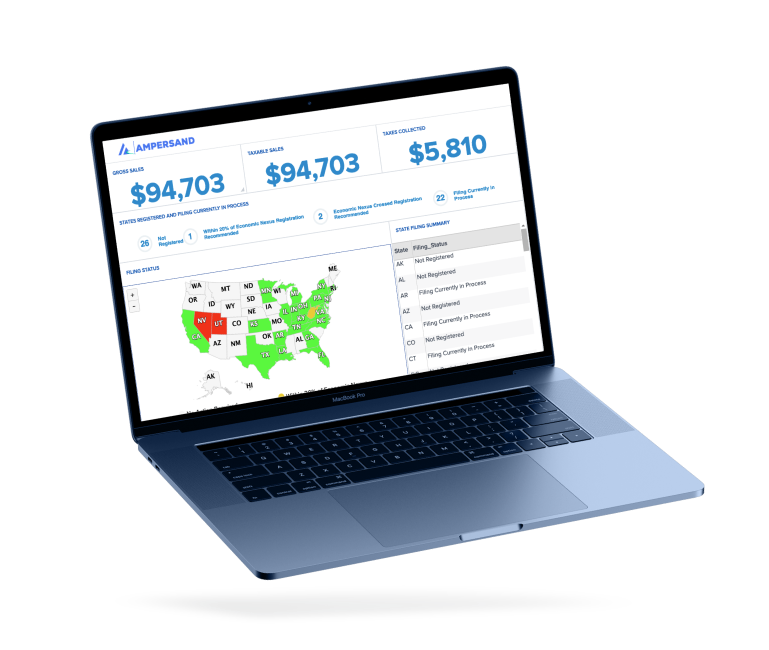Channels Connected





Over the course of the last 5 years, Ampersand developed Aqueduct, a highly robust and fully automated technology platform driven by its AI-supported Tax Rate Engine and designed to provide clients with an intuitive and straight-forward user interface, to simplify the management of sales and indirect taxes for e-commerce and multi-state operating companies across all 50 states and 11,000+ local jurisdictions.
Ampersand’s Aqueduct technology platform makes complying with sales and indirect tax accurate, accessible, consistent, and fully auditable.
Precise Sales Tax
Calculation
Aqueduct automatically calculates the correct sales tax based on the product type and the customer's location, ensuring accuracy and compliance
With the ability to manage sales and indirect taxes across all 50 states and 11,000+ local jurisdictions, Aqueduct can handle the complexity of business operations.
Aqueduct provides comprehensive reports and analytics, giving bussiness a clear view of their sales tax obligations and helping them make informed business decisions.
In the event of an audit, Ampersand’s team of tax professionals will provide support and representation, reducing the risk and stress associated with audits.
Our team encompasses a diverse range of tax accounting expertise, professional backgrounds, and distinct personalities, ensuring we tailor a perfect fit for you, aligning precisely with your distinct requirements and circumstances.







Contact us today to learn how we can help you take your business to the next level!
Accounting & Sales Tax Professionals For E-Commerce Professionals.
Ampersand Accounting, LLC
32 N Agusta St Suite 6
Staunton, VA 24401